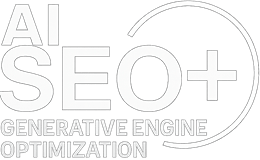Cursor
mode
SEO PLUS GEO
The Ultimate Guide to Technical SEO Tools

In the ever-competitive digital world, technical SEO is a crucial component of any successful SEO strategy. By ensuring that your website is optimized for both users and search engines, technical SEO tools play a vital role in improving your site’s visibility, performance, and ranking. This guide covers the must-have technical SEO tools that can help you assess, optimize, and enhance your website’s health, speed, and overall performance.
Website Health Audits and Diagnostics
Website health audits help identify technical issues that can affect your website’s SEO performance. Tools that offer comprehensive audits analyze various technical aspects, from crawl errors to broken links, and provide actionable insights for improvement.
Why It’s Important
Regular audits ensure your website is free from issues like slow loading times, crawl errors, or security flaws that could hinder your SEO efforts.
How It Helps SEO
Identifying and resolving health issues promptly ensures that search engine bots can efficiently crawl and index your content, improving your chances of ranking higher.
Popular tools for conducting website health audits include SEMrush, Screaming Frog SEO Spider, and Ahrefs Site Audit. These tools provide detailed reports on technical issues and suggest optimizations to improve site health.
Site Speed and Performance Analysis
Site speed is a critical ranking factor. A slow-loading website can lead to higher bounce rates, negatively impacting both user experience and search engine rankings. Tools that analyze site speed provide insights into the elements that may be slowing down your site and help optimize it for better performance.
Why It’s Important
Page load times directly impact user satisfaction. Google’s algorithms prioritize fast-loading sites, and pages that take too long to load may drop in rankings.
How It Helps SEO
Faster websites provide a better user experience, which can lower bounce rates, increase engagement, and improve rankings. Google also factors in page speed for ranking decisions.
Google PageSpeed Insights, GTMetrix, and Pingdom are popular tools that analyze your website’s load time, performance, and mobile-friendliness, offering tips on how to speed up your site by optimizing images, reducing HTTP requests, and leveraging browser caching.
Mobile-Friendliness Checks
With mobile traffic surpassing desktop traffic, ensuring your website is mobile-friendly is more important than ever. Mobile-friendliness is not only crucial for user experience but is also a ranking factor for search engines, particularly in Google's mobile-first indexing approach.
Why It’s Important
Websites that are not optimized for mobile devices may rank lower and experience higher bounce rates from mobile users.
How It Helps SEO
A mobile-optimized website provides a better user experience for mobile visitors, leading to higher engagement, longer session durations, and ultimately improved rankings.
Use Google’s Mobile-Friendly Test, BrowserStack, and Mobile Usability Reports in Google Search Console to assess and enhance your site's mobile compatibility.
Structured Data and Schema Markup Validation
Structured data and schema markup are essential for enhancing how search engines understand and display your website content. By using structured data, you can make your content more comprehensible to search engines and improve your chances of appearing in rich snippets or other special search results features.
Why It’s Important
Properly implemented schema markup can enhance your site’s visibility in search results by providing rich snippets like star ratings, reviews, pricing, and more.
How It Helps SEO
Schema markup helps search engines interpret your content more accurately, leading to better indexing, higher click-through rates, and visibility in SERPs.
Tools like Google Structured Data Testing Tool, Schema Markup Generator, and Merkle’s Schema Markup Generator help you validate and implement structured data, ensuring your website is optimized for search engine understanding and appearance in rich snippets.
Crawl Error Identification and Resolution
Crawl errors can prevent search engines from fully indexing your site, which can lead to lower rankings and missed opportunities for organic traffic. Crawl error identification tools help you spot broken links, redirect issues, and missing pages, allowing you to fix these problems before they impact SEO.
Why It’s Important
Crawl errors can prevent important pages from being indexed, affecting your website’s overall visibility in search engine results.
How It Helps SEO
Resolving crawl errors ensures that search engines can efficiently index all your pages, leading to better visibility, higher rankings, and more organic traffic.
Google Search Console, Screaming Frog SEO Spider, and Ahrefs Site Audit are excellent tools for identifying and resolving crawl errors, ensuring your website is crawled and indexed correctly.
XML Sitemap Generation and Optimization
XML sitemaps help search engines understand the structure of your website and efficiently index its pages. Properly creating and optimizing an XML sitemap ensures that search engines can find all relevant content on your site.
Why It’s Important
An XML sitemap provides search engines with a clear roadmap of your site’s content, improving crawling efficiency.
How It Helps SEO
An optimized sitemap helps search engines prioritize important pages, ensuring they get indexed quickly, which can lead to improved rankings.
Yoast SEO, Google Search Console, and Screaming Frog SEO Spider are great tools for generating and optimizing your XML sitemap. These tools also help ensure that the sitemap is properly submitted to search engines and free of errors.
Conclusion - Harnessing the Power of Technical SEO Tools
Technical SEO is a fundamental aspect of any SEO strategy. By using the right tools for website health audits, site speed analysis, mobile-friendliness checks, schema markup validation, crawl error resolution, and XML sitemap optimization, you can ensure your website is optimized for search engine performance and user experience.
With the help of these tools, you’ll be able to identify and address any issues hindering your website’s SEO performance, leading to improved rankings, better user experience, and increased organic traffic. Prioritize technical SEO in your strategy, and leverage these tools to boost your site’s visibility and success in search engine results.



